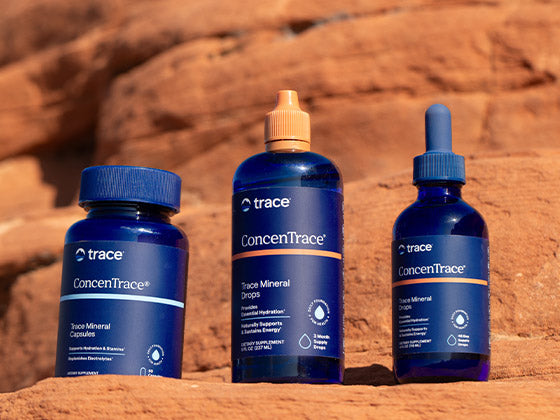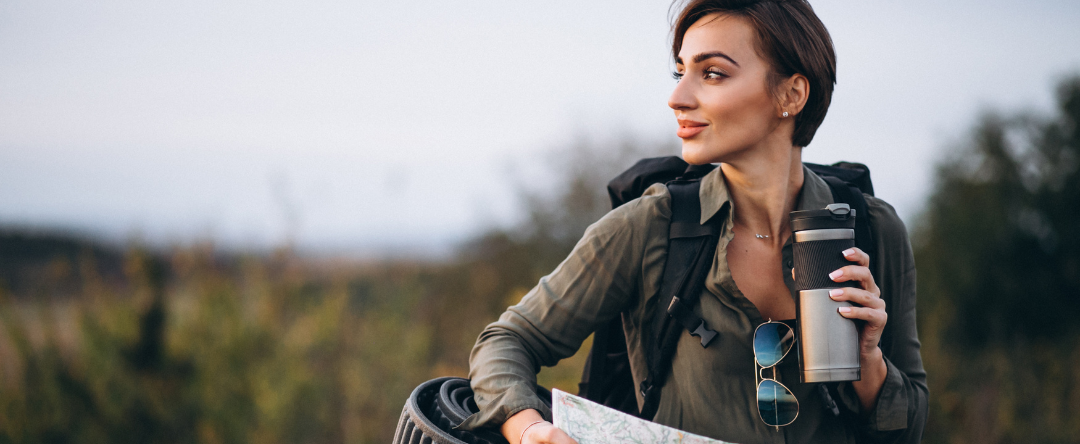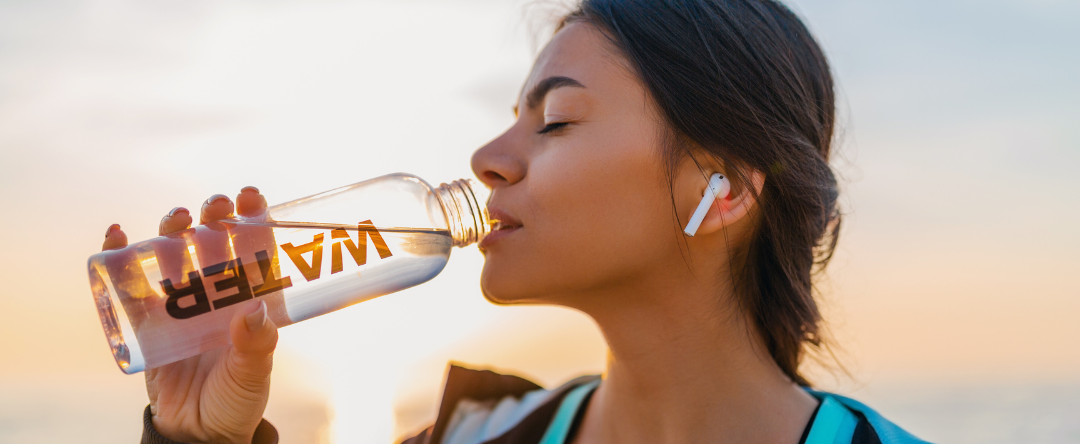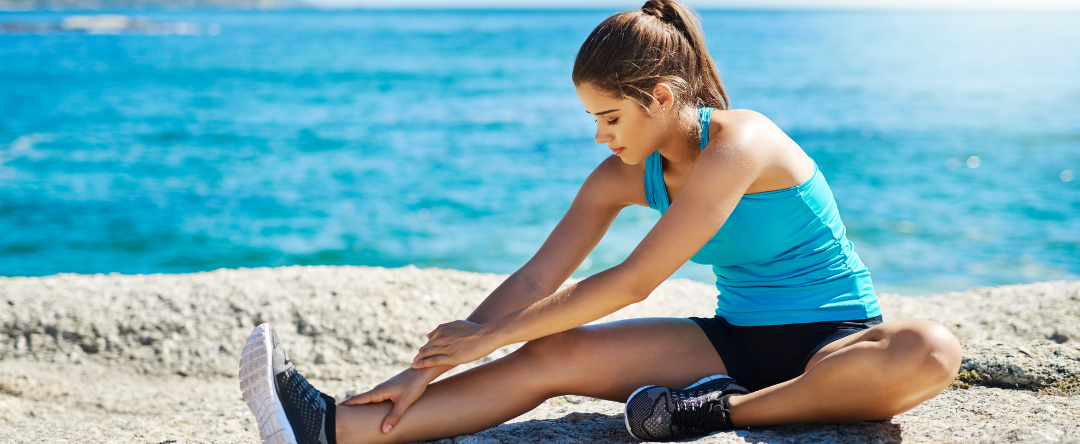At Trace, we specialize in science-backed mineral supplements formulated for real results. Every product is crafted with clean, bioavailable ingredients and tested for purity, potency, and absorption. Our hydration and immunity-support formulas are trusted by wellness-focused individuals worldwide. With decades of experience and a commitment to sustainability and transparency, Trace delivers the tools you need to feel your best—wherever life takes you.
Travel challenges your body in subtle but impactful ways. Long flights, new environments, and inconsistent routines can weaken your immune system and dehydrate you. That’s where thoughtful preparation makes all the difference. From electrolyte support to immune-friendly snacks and supplements, finding the best immune booster for travel means choosing portable, clean, and effective solutions.
This article will explore the best immune booster for travel, including hydration strategies, essential supplements, and practical nutrition tips to help you maintain energy, immunity, and overall wellness throughout your journey.
Key Takeaways:
- Hydration and Immunity Must-Haves: Discover evidence-based travel essentials that boost hydration and strengthen your immune system, helping you stay healthier throughout your journey.
- Smart Supplementation and Snacks: Understand the science behind effective mineral supplements and nutrient-dense snack options that support immunity and energy while traveling.
- Wellness Strategies for the Road: Learn practical tips for managing stress, maintaining a balanced diet, and optimizing sleep to support your overall well-being during travel.
Stay Hydrated With Electrolyte-Packed Mineral Supplements
Hydration goes beyond water intake—your body needs the right balance of electrolytes to function correctly. Sodium, potassium, magnesium, and calcium are essential for regulating fluid balance, supporting muscle contractions, and ensuring proper nerve signaling. Travel increases the likelihood of mineral loss through sweat, changes in climate, or disruptions to your regular routine, so if you’re wondering, “Why do I get sick when I travel?” many variables go into that answer.
Understanding The Risks Of Mineral Loss
Extended flights, increased physical activity, and exposure to heat can accelerate electrolyte depletion. When these minerals are lost and not replaced, you may experience fatigue, headaches, cramps, or impaired focus. Replenishing electrolytes during travel is key to maintaining energy, comfort, and immune resilience.
Why Supplements Are More Effective Than Standard Drinks
While sports drinks offer a basic electrolyte fix, they often contain excess sugar, artificial flavors, or low mineral content. On the other hand, Electrolyte-packed mineral supplements focus on delivering a complete spectrum of trace minerals in a bioavailable form, without unnecessary additives that work against your health goals.
How To Incorporate Mineral Support On The Go
Adding any of Trace’s Active hydration line products to your water bottle is a practical way to maintain hydration. These supplements are portable, easy to use, and provide targeted support for your body’s natural hydration and energy systems, especially under travel stress.
A Smarter Hydration Strategy For Travelers
By including mineral-rich electrolyte supplements in your travel routine, you support better hydration at the cellular level. This helps your body adapt to environmental stress, sustain energy, and stay alert, making your journey more comfortable and your recovery faster. It’s a simple addition with a meaningful impact.
Immune-Boosting Snacks To Pack For Your Trip
Snacks are more than fuel when you’re on the road or jetting off on an adventure; they’re your frontline defense for maintaining immune health in unfamiliar environments. Instead of reaching for highly processed convenience foods, packing nutrient-dense snacks can help you stay energized and resilient against travel stressors. And while you’re planning your travel nutrition, it’s worth asking: Do electrolytes help when sick? Staying hydrated and replenishing electrolytes, especially during or after illness, can support faster recovery and maintain overall well-being.
Nuts And Seeds For Immune Support
Raw almonds, pumpkin seeds, and walnuts are rich in vitamin E, zinc, and healthy fats. These nutrients play a critical role in immune function while providing lasting energy to power you through long travel days.
Dried Fruits For A Vitamin C Boost
Dried fruits like apricots and goji berries are lightweight and easy to pack. They offer natural sweetness and a dose of vitamin C, an antioxidant that supports the body’s ability to fight infections, making them an essential travel companion.
Nut Butters For Portable Protein
Single-serve almond or peanut butter packets are perfect for pairing with fruit or crackers. These snacks offer a good balance of protein, fats, and carbs to stabilize your blood sugar and energy levels.
Shelf-Stable Plant-Based Snacks
Roasted chickpeas and edamame provide protein, fiber, magnesium, and iron. These crunchy, nutrient-dense snacks support immune health and digestion, which can be disrupted during travel.
Nutrient-Dense Snack Bars
Opt for bars made with real, whole-food ingredients and fortified with vitamins and minerals. Look for low sugar and recognizable ingredients to ensure you get immune support without unnecessary fillers.
Smart Snacking For Healthier Travel
Choosing nutrient-rich, immune-supportive snacks helps reduce your risk of getting sick on the road. With the right options packed, you’ll stay nourished, energized, and better equipped to handle the stress of travel.
Simple Travel Exercises To Keep You Active
Traveling often comes with long hours of sitting, whether on a plane, train, or in the backseat of a car. Staying active doesn’t have to mean access to a gym or elaborate routines. Incorporating simple exercises into your travel plans can help maintain circulation, boost energy, and support your immune health.
- Seated Leg Extensions: While seated, straighten one leg at a time and hold it parallel to the floor for several seconds. Alternate legs for 10-15 repetitions each. This motion supports blood flow and prevents stiffness, especially during long-haul travel.
- Ankle Circles: Point your toes and rotate your ankles in slow circles—first clockwise, then counterclockwise. Perform 10 rounds in each direction per foot. This easy movement encourages circulation, which is crucial during extended periods of inactivity.
- Standing Calf Raises: Stand up, hold the back of a chair or your suitcase for balance, and lift your heels off the ground. Pause at the top, then slowly lower. Repeat 15-20 times. Calf raises engage your lower legs and can be performed nearly anywhere.
- Overhead Stretches: Interlace your fingers and stretch your arms above your head. Gently lean from side to side, feeling the stretch along your torso. Perform five whole stretches to each side. This routine alleviates spinal compression and keeps your posture in check.
- Walking Intervals: Take every opportunity to walk—pace the airport terminal, stroll during rest stops, or take brief walks up and down the train aisle. Even just five minutes of brisk walking helps activate dormant muscles during sedentary travel.
- Shoulder Rolls: Shrug your shoulders towards your ears, roll them back, and then lower them. Repeat 10-12 times to release neck and upper back tension—helpful for travelers who often hunch over devices.
These micro-movements can make a big difference when combined with adequate hydration and proper nutrition. Regular activity helps regulate immune function, reduce stress hormones, and maintain energy levels, empowering you to reach your destination feeling healthy and refreshed.
Hygiene Practices To Prevent Illness During Travel
Staying healthy on the road goes beyond packing the right supplements—rigorous hygiene is your front line of defense against illness. Every journey exposes you to new environments and various unfamiliar pathogens, but a few evidence-based habits can significantly mitigate your risk.
- Wash Your Hands Consistently: The Centers for Disease Control and Prevention (CDC) emphasizes the importance of washing hands with soap and clean running water for at least 20 seconds, especially before eating and after touching high-contact surfaces like door handles or public transit poles. Carry alcohol-based hand sanitizer (at least 60% alcohol) when soap and water aren’t available.
- Disinfect Surfaces: High-touch objects such as airplane tray tables, armrests, and hotel room remotes often harbor bacteria and viruses. To reduce your exposure, wipe down these surfaces with EPA-registered disinfecting wipes before use.
- Avoid Touching Your Face: Studies show that the average person touches their face multiple times per hour, providing a pathway for pathogens to enter through the eyes, nose, or mouth. Make a conscious effort to keep your hands away from your face, especially after contact with communal surfaces.
- Practice Respiratory Etiquette: When coughing or sneezing, cover your mouth and nose with a tissue or the inside of your elbow. Dispose of tissues immediately and sanitize your hands. These simple actions limit the spread of infectious droplets in confined spaces.
- Pack Personal Hygiene Essentials: Travel with your essentials: a toothbrush, toothpaste, floss, deodorant, wipes, and a small towel. Dedicated, clean items reduce reliance on potentially unsanitary communal offerings and support your daily health routine.
Adjusting To New Time Zones: Sleep Strategies
Jet lag can sabotage even the healthiest travel plans, sapping your energy and weakening your immune defenses right when you need them most. As you adjust to a new time zone, your body's internal clock—your circadian rhythm—faces a daunting task: rapid recalibration. Science agrees there’s no “magic cure” for jet lag, but embracing evidence-based strategies can significantly smooth the transition and help you maintain robust health on the road.
- Sync Up Before You Fly: Research shows that gradually shifting your sleep and wake times by one or two hours toward your destination’s schedule in the days before your journey can minimize shock to your system. Think of it as giving your circadian rhythm a gentle nudge rather than a rude awakening.
- Strategic Light Exposure Matters: Light is your circadian system’s most powerful regulator. Exposing yourself to bright, natural light in the morning helps advance your body clock if you’re traveling east, while late afternoon light delays it when traveling west. Invest in a quality sleep mask for flights or hotel rooms when controlling light exposure is key.
- Prioritize Quality Sleep: Sleep deprivation impairs immune function and can deepen feelings of fatigue. Create a restful environment: Use earplugs, blackout curtains, and turn off screens at least 30 minutes before bed. If you struggle to drift off, calming nighttime routines—like reading, meditating, or gentle stretches—can signal your body to power down.
- Stay Hydrated: Dehydration can amplify jet lag symptoms and leave you more susceptible to illness. Start hydrating well before your flight, and keep water accessible at all times during your travels. Skip heavy meals, caffeine, and alcohol close to bedtime, as these can disrupt your sleep patterns and slow your body’s adaptation to a new schedule.
Final Thoughts
As you prepare for your next journey, prioritizing hydration and immune support isn’t just smart—it’s essential today. Your body relies on a nuanced balance of minerals and nutrients to power immune defenses, keep energy levels steady, and optimize hydration, especially when travel stressors come into play. That’s where choosing the best immune booster for travel can be transformative.
At Trace Minerals, we harness over half a century of experience and scientific guidance to craft supplements rooted in nature yet refined by rigorous research. Our active hydration range delivers a comprehensive spectrum of bioavailable minerals, sourced directly from Utah’s mineral-rich Great Salt Lake waters and verified through third-party testing.
Before your next adventure, make hydration, mineral balance, and immune resilience non-negotiable—with Trace as your trusted companion.
Read also:
- Optimal Daily Electrolyte Levels For Hydration And Energy
- How Many Minerals Does Your Body Need Daily For Optimal Health?
- Symptoms of Dehydration: Key Warning Signs and How Electrolytes Can Save You
Frequently Asked Questions About The Best Immune Booster For Travel
What is the importance of staying hydrated while traveling?
Staying hydrated is essential for maintaining your body’s basic functions, especially during travel. Dehydration can undermine your immune system, sap your energy, and make you more susceptible to jet lag or illness. Adequate hydration helps your body maintain temperature, cushion joints, support digestion, and flush out toxins, which are critical for thriving on unfamiliar schedules or in new environments.
What are the best ways to stay hydrated on long journeys?
Carry a refillable, BPA-free water bottle to optimize hydration during travel and sip water consistently instead of chugging large amounts at once. Consider supplementing with natural, full-spectrum mineral drops—like ConcenTrace from Trace Minerals—to replenish lost electrolytes and improve water absorption. Avoid excess caffeine and alcohol, which can contribute to dehydration.
What kind of water bottle is best for travel?
Choose a leak-proof, durable, and lightweight water bottle. Stainless steel bottles are excellent for keeping drinks cool and are easy to clean, while BPA-free plastic or collapsible silicone bottles are ultra-portable for flights or backpack space. Look for options with a wide mouth to make it easy to add ice or mineral drops on the go.
Are there any specific drinks that help boost travelers' immunity?
Absolutely. Drinks that combine bioavailable electrolytes, trace minerals, and vitamin C support hydration and immune function. Avoid sugary sodas; opt for mineralized water, naturally flavored herbal teas, or electrolyte-infused blends.
How much water should you drink to stay hydrated when traveling?
Aim for at least eight 8-ounce glasses (about two liters) per day as a baseline, but adjust this amount upward if you’re flying, exercising, or in hot climates. Listen to your body: thirst, dry mouth, and decreased urination are signs you need more fluids. A general rule is to drink frequently—even before you feel thirsty. After all, can you get sick from travelling to different climates? The answer is yes—sudden environmental changes can stress your immune system, and staying hydrated is one of the simplest ways to help your body adapt and stay healthy.
Can hydration affect your energy levels during travel?
Definitely. Even mild dehydration can trigger fatigue, brain fog, and headaches, sapping your stamina and focus while on the move. Replenishing water and essential minerals supports healthy cellular function and sustained energy, helping you get the most out of every destination.
What signs of dehydration do you look out for while on the go?
Watch for these warning signs: dry lips or skin, dark yellow urine, dizziness, headache, fatigue, or rapid heartbeat. If you experience any of these, increase your fluid intake immediately and consider using a mineral supplement for faster recovery.
How does hydration boost your immune system?
Proper hydration ensures that nutrients, including immune-supporting vitamins and minerals, are efficiently transported throughout your body. Water supports lymphatic flow, which helps remove waste and fight infection. When combined with full-spectrum trace minerals, hydration forms a first line of defense, strengthening your body’s natural immunity even when you’re far from home.






